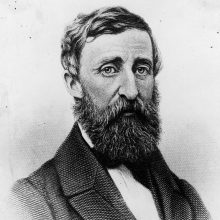Henry David Thoreau

Henry David Thoreau (1817–1862) was an American essayist, poet, philosopher, and naturalist best known for his book Walden and his essay Civil Disobedience. Born in Concord, Massachusetts, Thoreau was deeply influenced by transcendentalist thinkers, especially Ralph Waldo Emerson, who became his mentor.
Thoreau studied at Harvard University and later worked as a teacher, pencil maker, and surveyor. In 1845, he famously moved to a cabin he built near Walden Pond, where he lived simply for two years to explore self-reliance and nature. This experiment in simple living became the basis for Walden, a reflection on personal independence and harmony with nature.
He was also a passionate advocate for social justice, notably opposing slavery and the Mexican-American War. His essay Civil Disobedience argued that individuals should not permit governments to overrule their consciences—an idea that later influenced leaders like Gandhi and Martin Luther King Jr.
Thoreau died of tuberculosis in 1862, but his work has had lasting impact on environmentalism, political thought, and literature.
